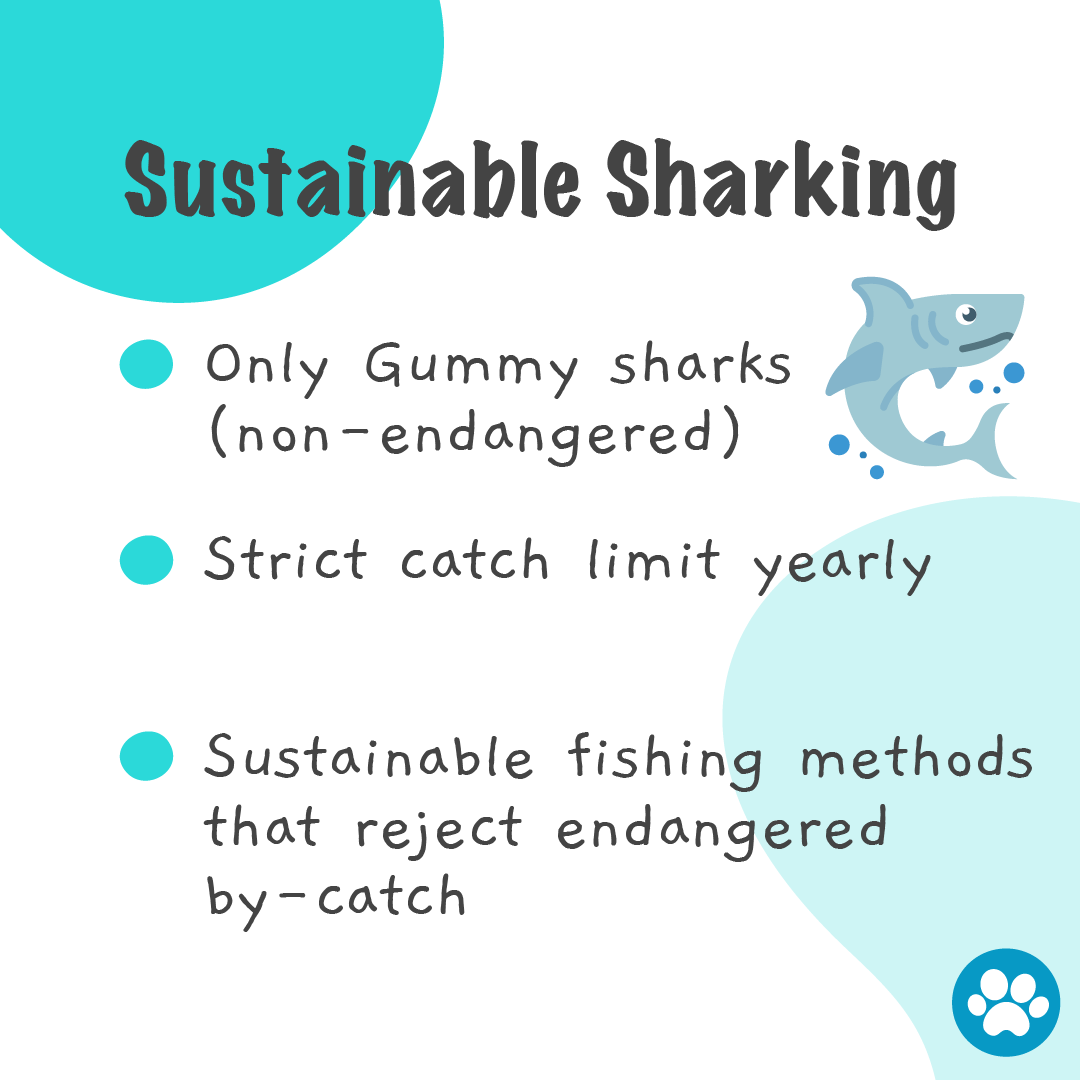Crushing Unethical Fishing: Sustainable Sharking For Your Dog's Best Nutrition
Disclaimer: Before we started BELLY UP, we have collected information about sustainable fishing for more than a year to ensure that we get as many quantifiable reasons to use certain ingredients and methods in producing our treats & wellness products as much as possible.
However, if there is any inaccuracy in our article below, please feel free to contact us with your data points for us to improve and treat better for our industry.
During Chinese wedding banquets in Singapore, we are often presented with a 10-course feast which includes the controversial Shark’s fin soup as a starter.
With global endangered shark species numbered at a whopping 470 according to the International Union for Conservation of Nature (IUCN), it is no wonder that environmental conservation groups have flagged a huge concern for the finning activities carried out in asian waters. It is estimated that 73 million sharks are killed each year solely for their fins, which is a delicacy in Japan, and a medicinal product in China.
At BELLY UP, we aim to conserve as much of our environment as possible by leading the charge on building a sustainable business. Protecting the ecosystem that we thrive on has been top-of-mind whenever we curate ingredients for our treats and wellness solutions. In this heartfelt post, we discuss the controversial sharking industry and the steps we have taken to protect and sustain our elegant ocean predators.
What is Sustainable Fishing?
Sustainable fishing is a scientific approach to fishing that respects ocean habitats and reproductive rates of fish to maintain a balance and ensure the survival of all marine species.
Sustainable fishing can be practised by both developing and developed economies, as long as governments come together to agree upon reasonable fishing quotas and rejecting by-catch.
By-catch is a term used to describe fish species that are caught unintentionally while catching certain target species and target sizes of fish. Examples of by-catch include undersized, underaged, or different species of fish that inadvertently get caught when fishing with nets.
Where is BELLY UP’s Shark Cartilage from?
Our shark cartilage comes from wild-caught gummy sharks in South Australian fisheries. Gummy sharks, unlike most shark species, are not overfished. The Australian federal government mandates a catch limit of gummy sharks from Australian fishing vessels each year. This limit is also recalibrated every year with input from the fisheries, industry members, scientists and researchers. This helps to ensure that there is input from scientific and industry expertise to maintain healthy levels of biomass of marine species in the Australian waters.
How do you ensure sustainable fishing of sharks?
There are only a handful of fishing methods available now that are considered to be sustainable. The best types of fishing allows for a good targeted catch rate without too much by-catch being hauled. Our fishermen generally use Gillnetting and Longlining to ensure that they catch only what is required. These are also the best targeted fishing methods, other than the traditional hook and line method.
Till date, Gillnets and Longlines have been known to cause minimal damage to the marine ecosystem and seabed, compared to other forms of fishing such as trawling. Fish are also often alive by the time they are brought to the surface.
In the process of catching gummy sharks, some school sharks may be caught incidentally. School sharks are considered to be overfished, and they are limited by the Australian federal government to be either released, or brought onto land with a very limited quota. In addition, since these are protected species, we do not use them in any of BELLY UP’s products.
We promote sustainability by following mandated catch limits and fishing methods.
What about Shark Finning?
Shark finning is the practice of removing a shark’s fins from the body, and discarding the rest of the body at sea. This practice is illegal in both Australia and New Zealand.
No finning activities are allowed to be carried out by our fishery sources.
All shark catches that are brought to land are examined and are required by the authorities to be delivered intact and whole. This means that the caudal lobe, caudal fin, pectoral fin, and dorsal fin must be intact when delivered to a fish receiver.
The Australian Fisheries Management Authority details this in their article.
What else can we do to protect endangered shark species?
In supporting sustainable farming and fishing of any species, we are ensuring the livelihoods of those in the supply chain that opt for more sustainable practices in their trade. We consistently reject lower prices from less sustainable or unethical fisheries and farmers to send a resounding message that we want to protect our environmental balance. These include rejecting origins of imports where sustainability practices are poorly established and governments have neglected investing in better farming practices that protect the earth.
When you choose to shop with BELLY UP, you choose to endorse ethical fishing practices and sustainable living.
We are huge supporters of Australian fresh produce, as they have proven to be stringent regulators and champions of sustainable farming and fishing practices.
For more information on the origins of our seafood and sustainability practices, please head to the Australian Fisheries Management Authority website to read more about gummy sharks and the South Australian marine environment.
Want to learn more about the best ways to treat your pet?
Subscribe to our mailing list below!
xo
Nellie




